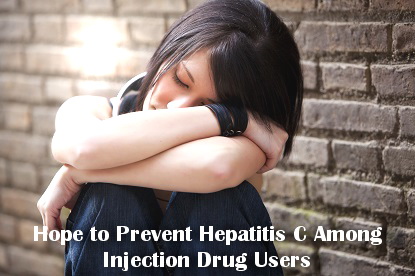Drug use comes with a host of risks, and not all of them relate to the substance you’re taking or how your behavior changes due to addiction. In fact, some of the most significant risks for injecting drug users come from the danger of catching a blood-borne virus from dirty needles and injecting equipment. The most well known disease that can be passed along as a result of dirty injecting equipment is HIV, but research has shown that the prevalence of the immunodeficiency virus is much lower than the hepatitis C virus (HCV), which affects about 27 percent of injecting drug users. In line with the significant risk this represents, researchers have suggested some simple steps that can be taken to reduce the prevalence of HCV.
Injecting Drug Users and HCV
HCV is a contagious virus that leads to the liver disease commonly known as hepatitis C. The condition can vary in severity, producing anything from a few weeks of mild illness (which may even be ignored) to a much more serious, lifelong ailment. In severe cases, the condition can lead to liver cancer or cirrhosis of the liver (which is the death of liver tissue, causing a drastic reduction in functioning), and according to the World Health Organization , about 350,000 people die every year as a result of the condition.
Like HIV, HCV is contracted through blood-to-blood contact with an infected person, which means it can be caught through things like a tainted blood transfusion or organ transplant. However, the most immediately preventable cause of infection is the sharing of injecting equipment among drug users and accidental infections through used needles. The problem of infection is made much worse by the fact that 80 percent of those infected don’t initially display symptoms.
Among all people newly infected with the condition, about 80 percent will develop the chronic version of the condition, and the majority of those will progress to chronic liver disease. Those who are symptomatic might experience fatigue, nausea, vomiting, stomach and joint pain, dark urine, grey feces and jaundice (a yellowing of the skin due to decreased liver function).
The UFO Study
The “U Find Out” study is memorably abbreviated to the “UFO Study,” and it has been conducted for over 16 years on young injecting drug users in San Francisco. There were over a thousand participants between 2000 and 2007, and many valuable statistics have emerged from the research. Out of those who were screened, 45 percent—almost half—had the antibodies for HCV, which indicates that they’ve had the infection at some point in the past or are currently suffering from it. Although spontaneous remission is possible, this only happens in about one in five of those infected, so most continue to be infected as they use drugs and potentially share needles. Many of the infections are related to direct needle sharing, but the researchers also found that 40 percent of cases are related to the sharing of other equipment such as preparation containers and filters.
Suggested Solutions
The problem of HCV infection isn’t particularly challenging to address, but it does require a concerted effort on the part of public health officials. Needle exchanges are an essential element of the strategy as they provide injecting drug users with clean equipment, but the researchers point out that these centers should endeavor to also provide additional equipment. The researchers want to see exchange programs rolled out across more of the country, but it’s important that they don’t focus on needles alone.
A new method of screening for HCV is also available. It allows users to receive the test results in a mere 20 minutes, and one of the key suggestions is to expand testing to at-risk populations where possible so that anti-viral medications can be provided to tackle any cases of infection and therefore reduce the risk of further transmission. Additionally, counseling for those infected with the condition or who are at risk because of their intravenous drug use will be an essential component of a successful strategy. The researchers also suggest that interventions should be developed to address the social risk factors that make injecting drug use—and therefore HCV infection—more likely.
Finally, as you might expect, encouraging abstinence—or at least a reduction in use—among injecting drug users is one of the most important suggestions. There are many other psychological, sociological and medical reasons that these individuals should be offered treatment, but it would have an undeniably significant effect on the numbers of new HCV infections.
Harm Reduction Is Essential
The expected criticisms of this approach come from those who believe that offering drug users clean needles is in some way “encouraging” them to continue abusing substances. This is far from the case; in fact, harm reduction measures are specifically designed to help users who are struggling to quit entirely. Moralizing and refusing any help unless the individual stops taking drugs entirely places unrealistic demands on users and risks marginalizing them and making it much less likely that they’ll attend treatment. Giving a young heroin addict a clean needle to plunge into his arm might not be the most appealing idea, but if you can accept that large numbers of people are unable to stop using drugs (for whatever reason), then it would be truly cruel to expose them to unnecessary risk. Needle exchange programs should be widely available in every locality to reduce the vast numbers of new HCV infections.



